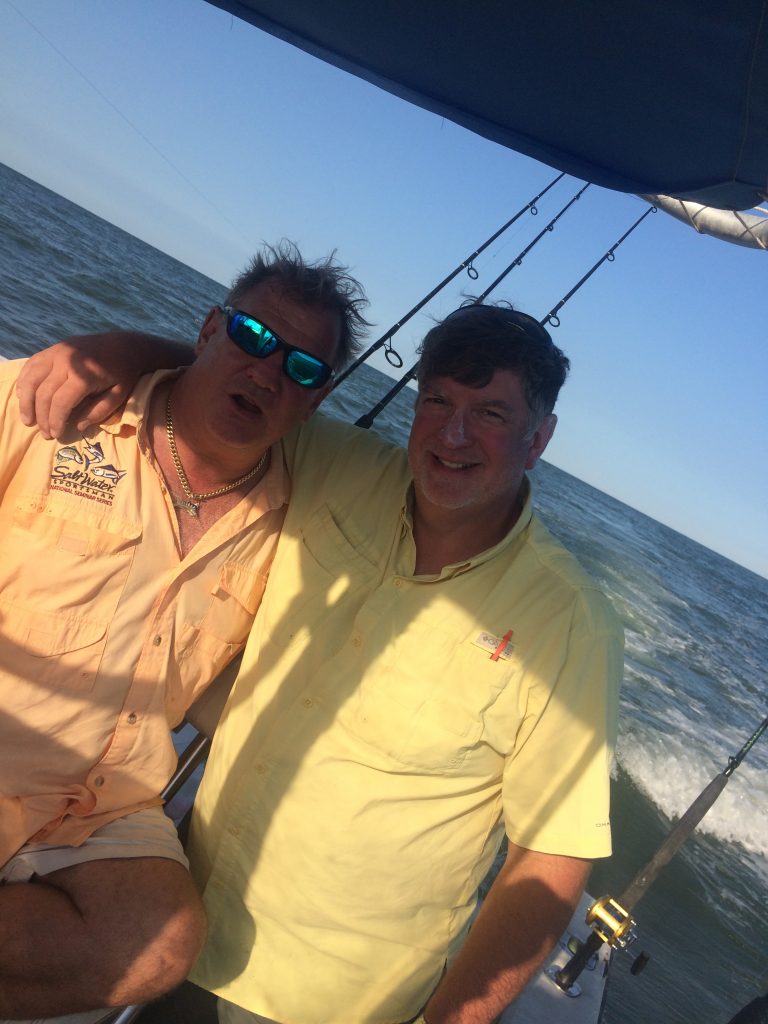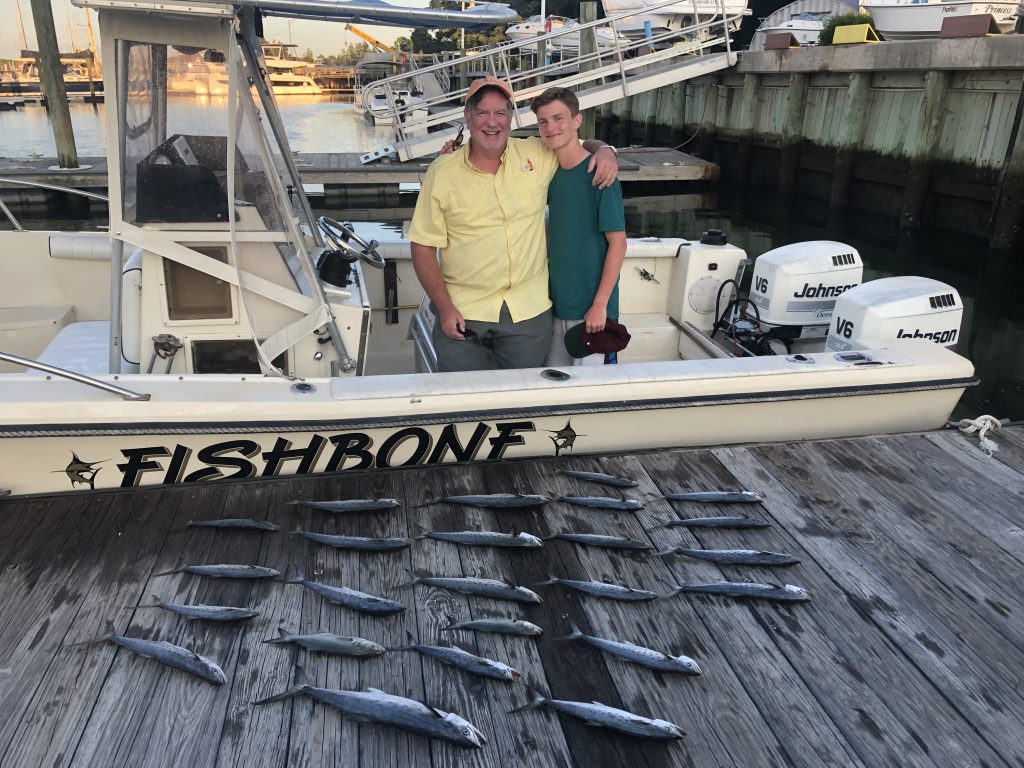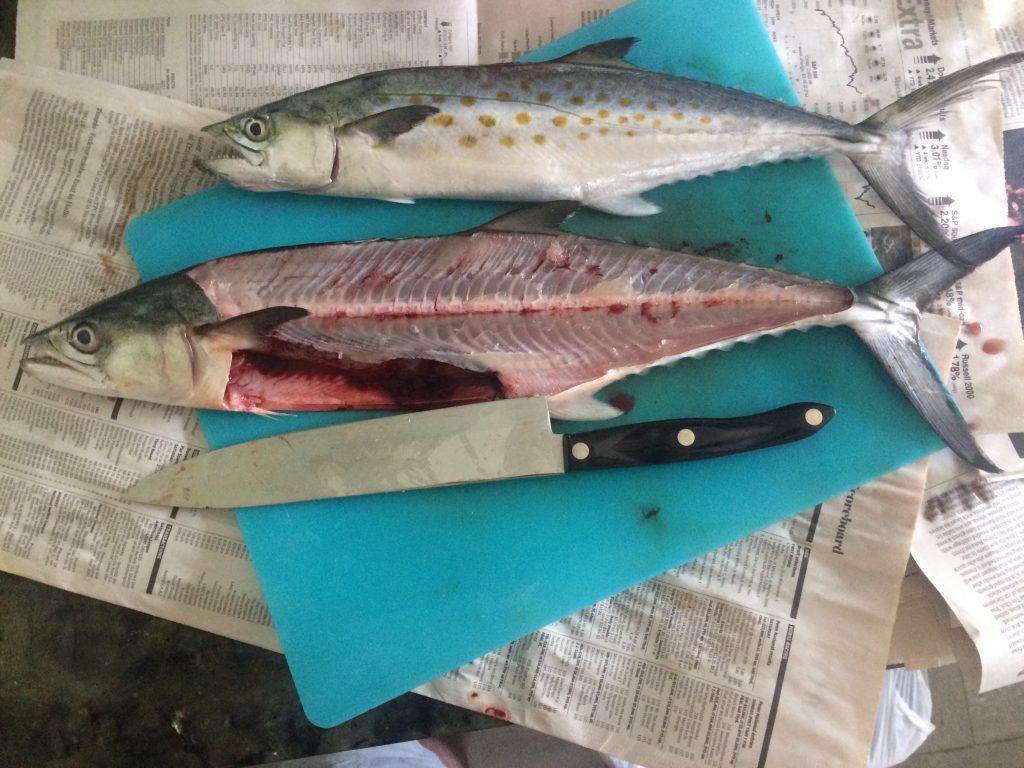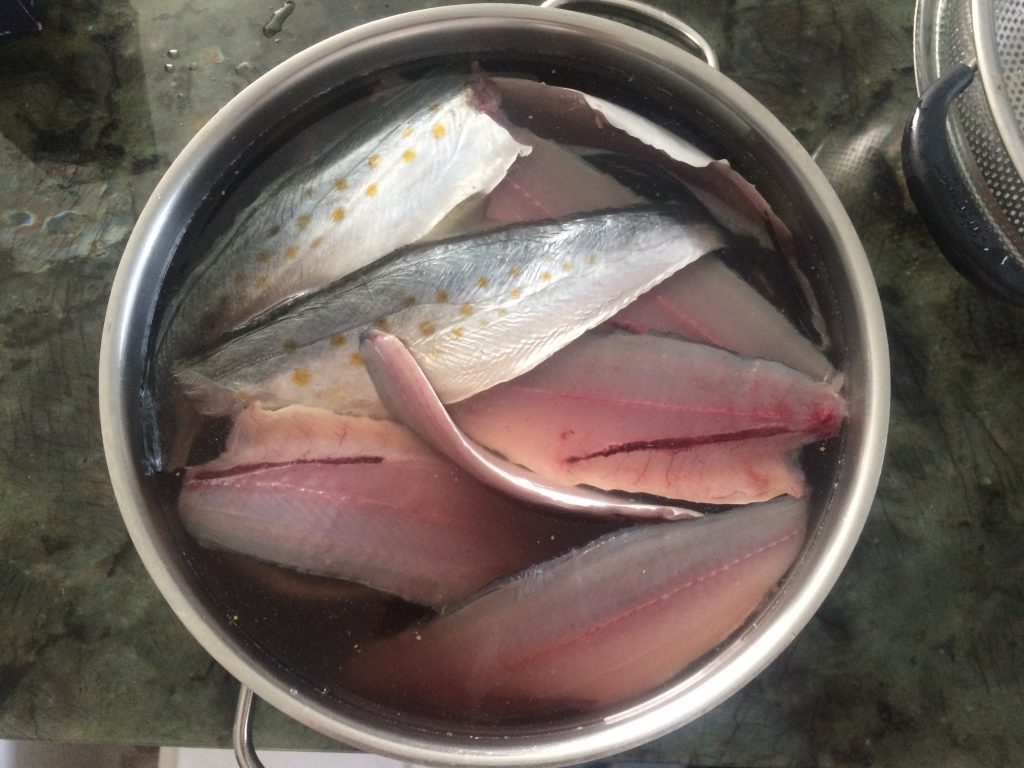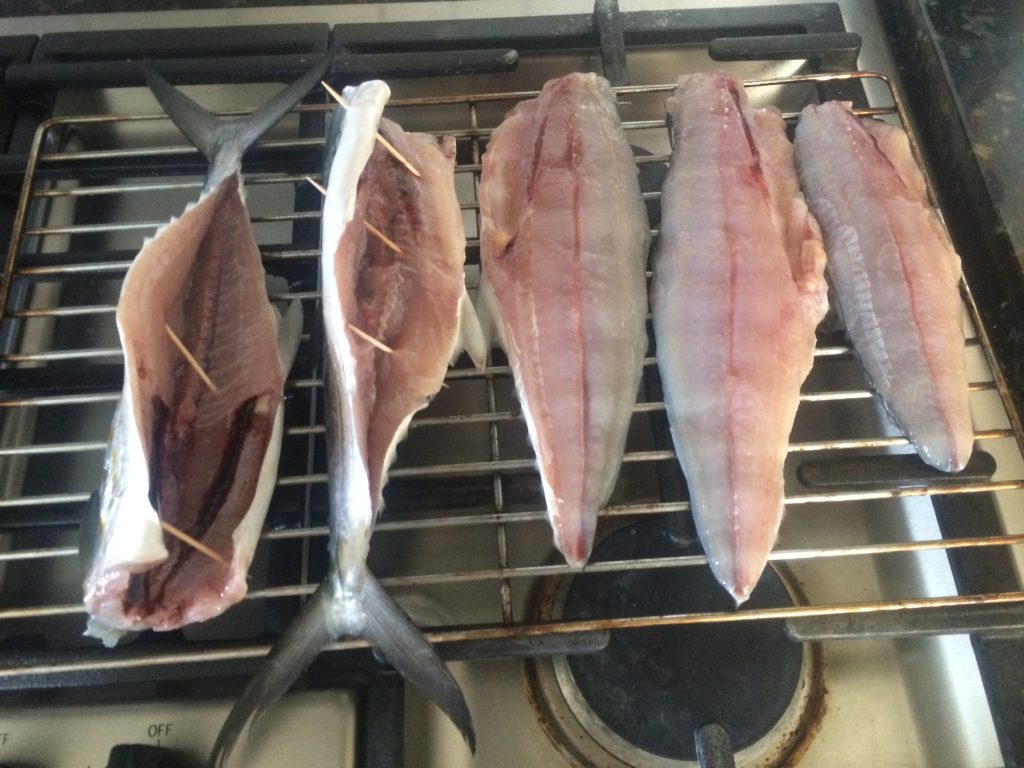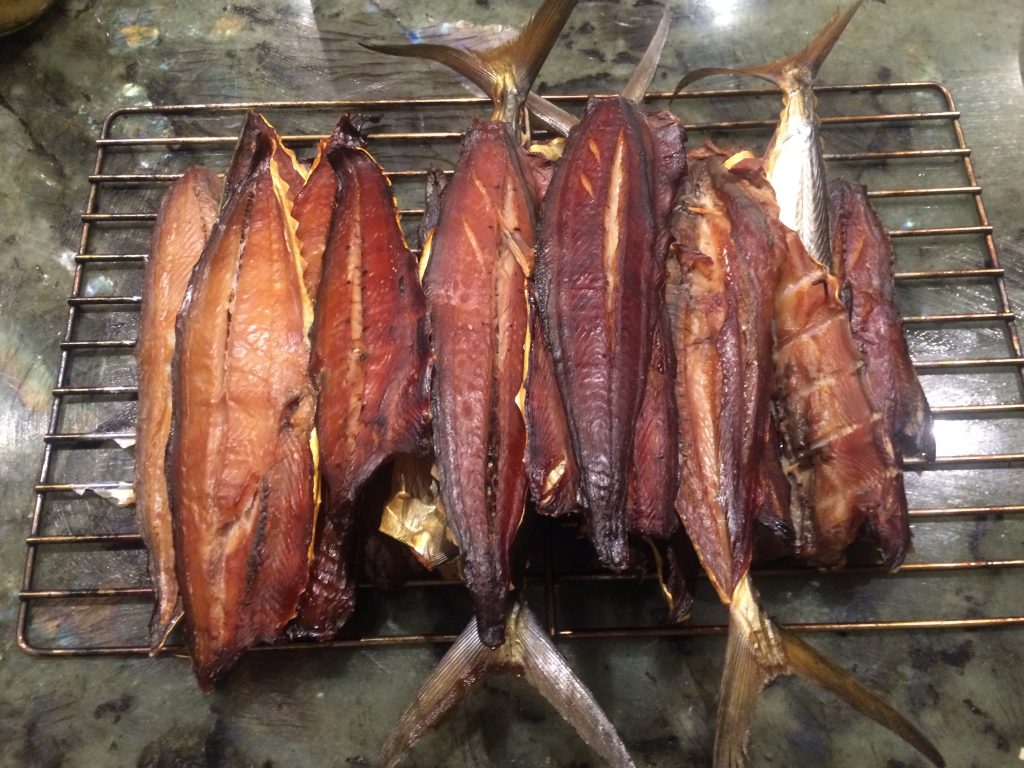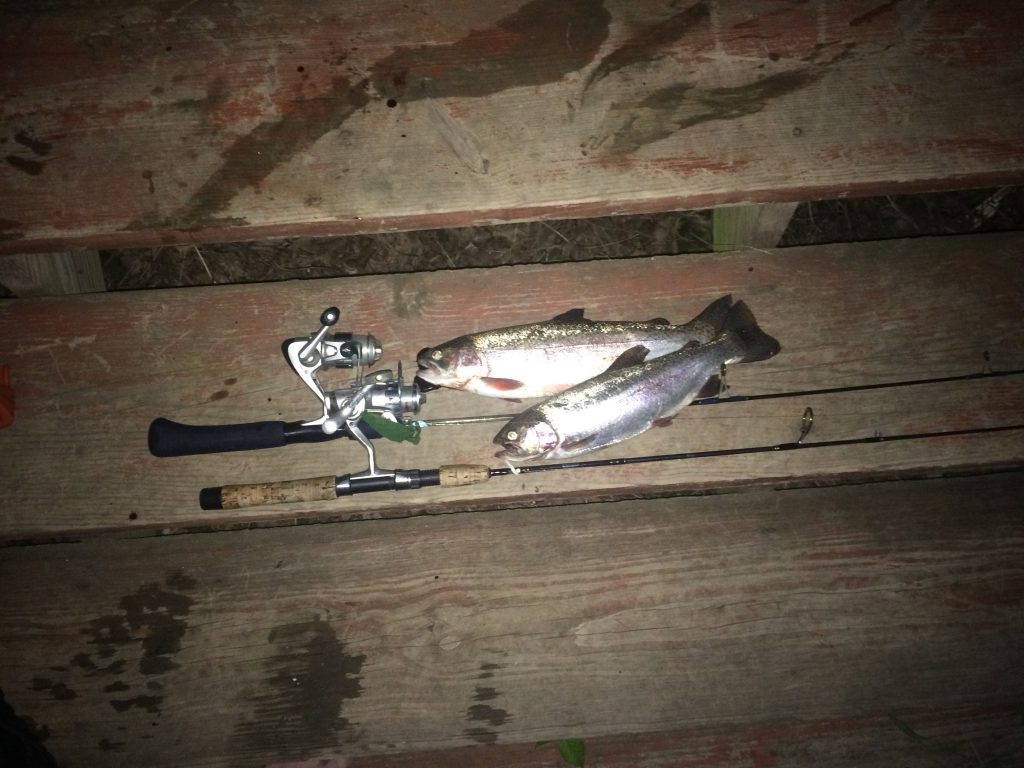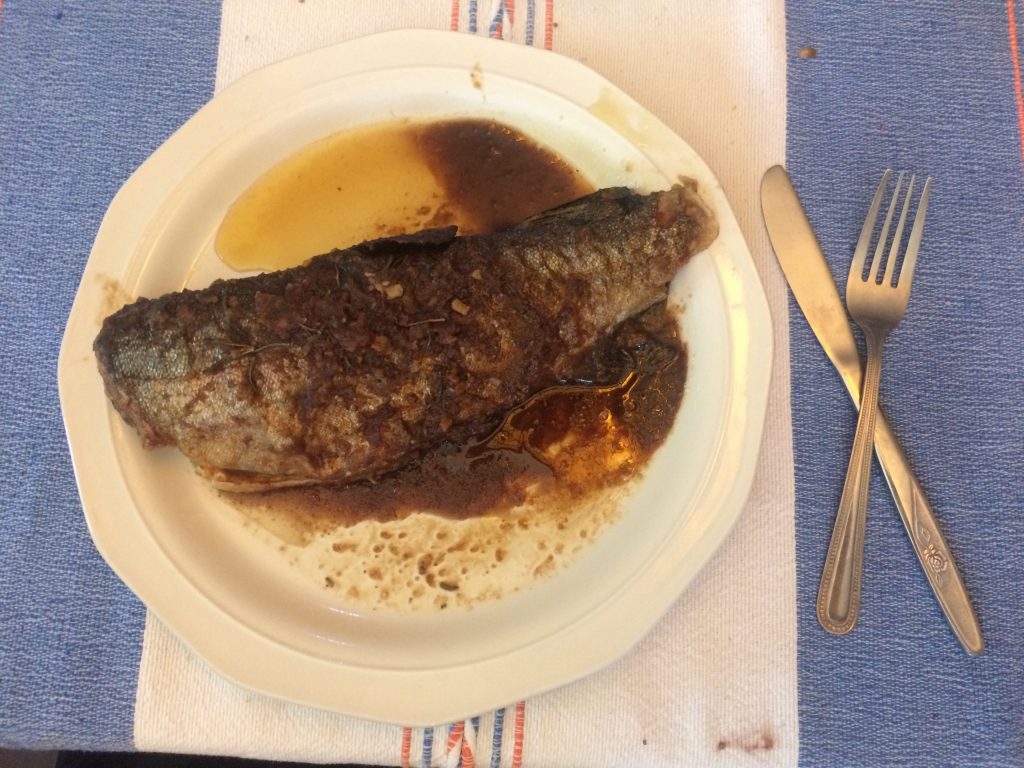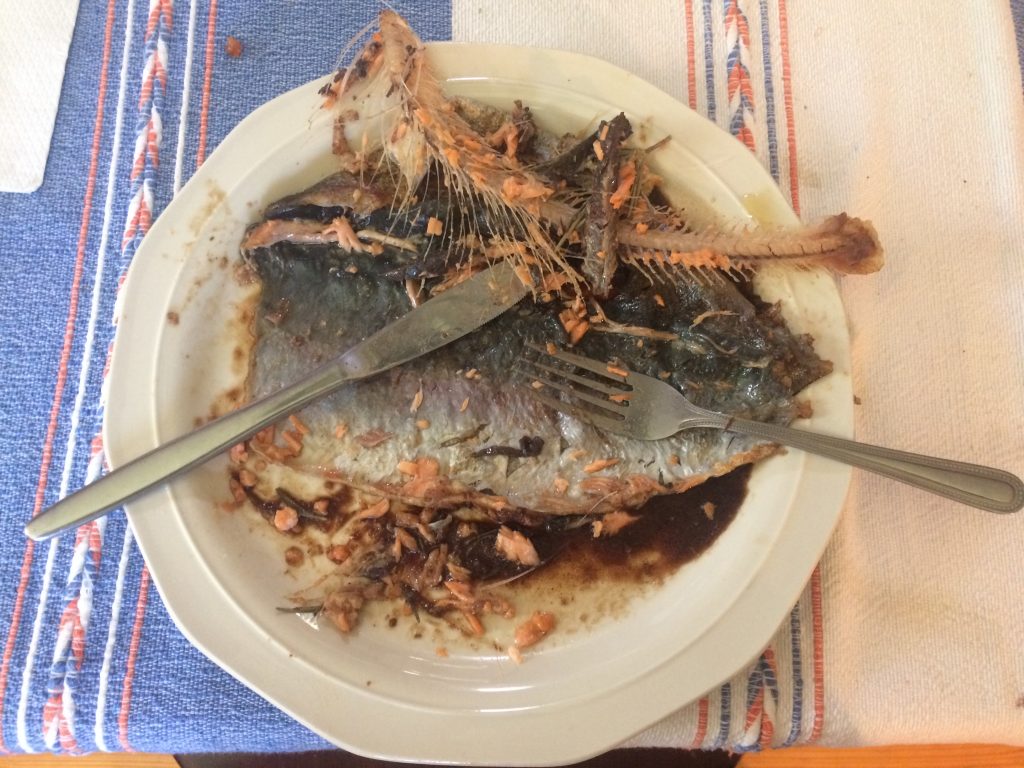Posts Tagged → trout
Harrisburg’s Midtown Scholar A+ experience
One of the pleasures of maintaining a blog is the opportunity to write about any old subject the author desires. It could be cats, dogs, selecting household paint colors (the best quality I ever saw were at the Farrow & Ball store in Dublin, Ireland. The best. Unbelievable, really.), gardening, hikes, nature photos, cooking, the funny turns of daily life, and of course politics and culture. Well, I had long ago hoped to write about all of these things, minus the cats. But the political developments since the Obama years have grown into a now direct threat to American democracy. As was Obama’s stated plan for “fundamental change,” whether Americans wanted it, or not. So the political stuff has dominated here, even though there should be so much more to life to write about.
Despite the incredible political developments since Biden’s Satanic Red Hell speech in Pennsylvania last week (during which Biden made no mention of China or fentanyl or the open border and instead declared official US military war against his political opponents), and a federal judge stopping the corrupt FBI from any further handling of the thousands of pages of medical records, accounting records, and private legal records that the FBI stole from President Trump’s Mar-a-Lago home for political gain against him, I am taking a moment to recognize a local used book store. Why not, we all need a break from the political misery that is gripping our beautiful nation.
And we are recognizing not just any book store, but the Mid Town Scholar book store here in Harrisburg. A small business run by a guy named Eric Papenfuse, who had the fatal attraction of politics inflame his brain. He served as Harrisburg’s beleagured mayor for eight years, and is now blessedly back to running a really neat used book store that provides so much happiness for so many people.
Yay Eric!
I want to thank Eric for having the Mid Town Scholar open at all. In 2012, when I ran for state senate, Eric’s book store café in Mid-Town hosted all of the political debates in a safe and nice atmosphere, with good seating for a large audience, and good electronics for communicating with the public. It was a real service to the public to provide that forum, which I always appreciated and which the Harrisburg area and Dauphin County benefited from.
So fast forward just a few years and I am looking for A River Runs Through It in paperback, as a gift for my son who is beginning his life adventure as a young adult. I grew up bait fishing and fly fishing in Central Pennsylvania’s trout streams, limestone and freestone, and Norman Maclean’s Siddhartha-like use of the unifying river theme in his amazing book is an important idea for all young people to begin life’s journey with. And so I was determined that this wonderful book was going to be my gift to the traveling boy.
Problem was, I could not really find it in paperback. Not new or even just slightly used, for any reasonable amount. And it seemed a lot of sellers wanted an arm and a leg for what should be a five buck book, especially one that was literally eaten by a dog. After failing to find what I wanted at Abe Books, and despairing of Amazon’s heartless tactics, I decided on a whim to try our local community’s used book store, Mid Town Scholar. And I was like “I’ll be damned,” because they actually had two copies. Each for a great price.
So I ordered both copies online, one for my son and one for me, as my own original from 1992 long ago swam off into someone else’s book collection. Within a few days I had professional email notices telling me exactly where my two books were, and that I could pick them up in person, if I wanted to, either at the café in Midtown Harrisburg, or possibly at the warehouse not far from my home, when they were ready. And so that is what I opted to do, to pick it up at the warehouse. Even though this is not how I was supposed to pick up the books, the staff still emailed with me and helped me get what I wanted in the way I wanted it. In a nutshell, I met the nicest, most cheerful and personable people working for Mid Town Scholar, who treated me most professionally and who delivered A+ customer service.
Thank you, Mid Town Scholar staff! What an excellent experience.
And on top of all the excellent technical support and customer support experience, both books were brand new. They did not seem to have any wear or use. Talk about receiving something rewarding ordered unseen on line, and relying on someone else’s judgment about its quality, and being more than pleasantly surprised. I don’t know if Mid Town Scholar can replicate this kind of experience every time for book buyers, but I will say I am really pleased with my experience from beginning to end.
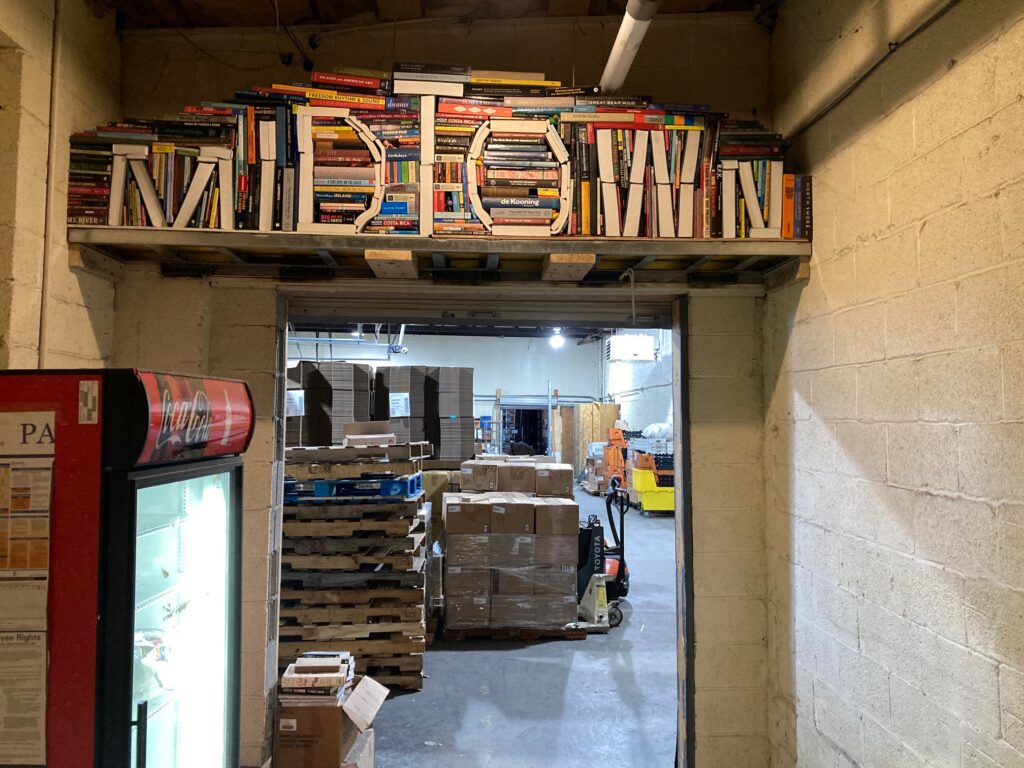
One of four or five, maybe six or seven, Mid Town Scholar Book Store warehouses in the Harrisburg area
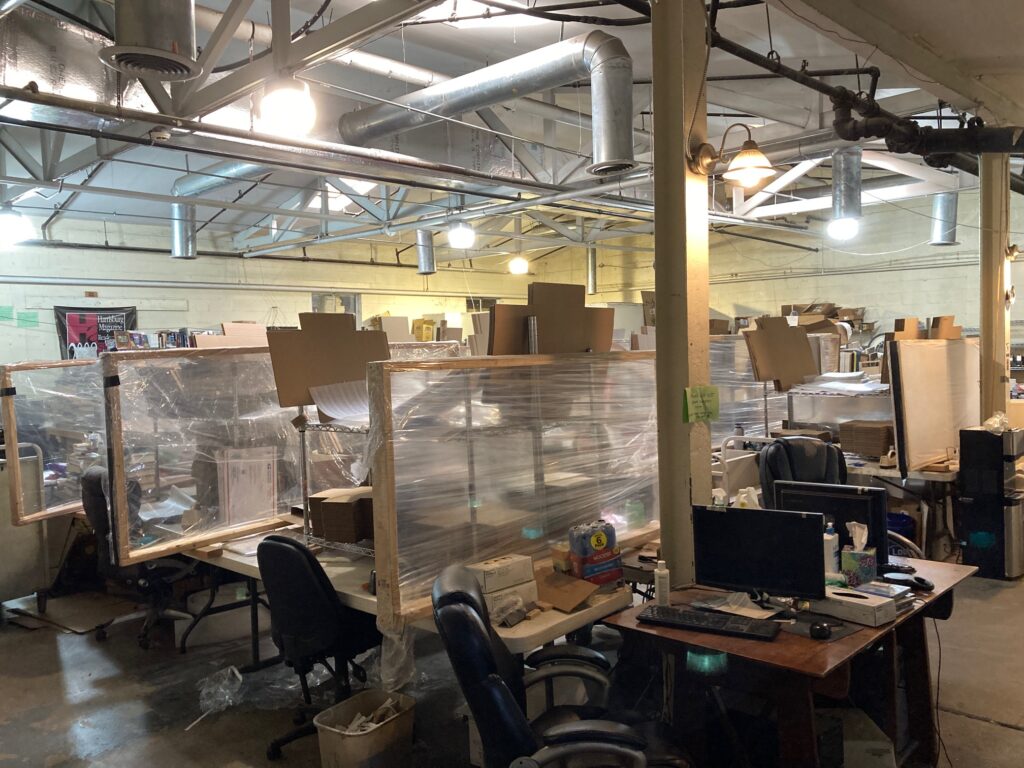
This particular warehouse was a beehive of activity as friendly staff wrapped book orders for shipping. It was here that Seong met me and handed me my wrapped books. That I was supposed to pick up downtown at the cafe, not here at the warehouse. Seong and everyone else was cheerful and happy to see me get what I wanted. I had a great experience

This is the Mid Town Scholar book store warehouse that I was informed about in my customer order email. It is quite unassuming, but behind these doors lie a treasure of unimaginable value and fun. Thank you for letting me pick up my books here, folks
Books are nowhere near dead, and I encourage everyone to buy some used books. They don’t need batteries, they don’t strain your eyes, and it is amazing what was printed not too long ago. For five bucks you can enter a book’s magical world and learn a lot, and then hand the book off to someone else. Or leave it in a doctor’s office with a note to the next owner.
How’s Your Turkey Season Going? Yeah, Me Neither
Highly successful turkey hunters are as rare as hen turkey teeth, and they will earnestly tell anyone in earshot that it is a pursuit only for the crazy. Spring gobbler hunting is tough, for so many reasons. Very tough. The weather is often cold as hell in the dark pre-dawn, you must sit unmoving for hours, call perfectly, but then move very slowly and correctly only at the precise moment when the shot is offered, and then eventually the temperature warms up and the swarming bugs come out, ticks crawl up your butt crack and into your armpits, etc.
The wild turkey itself is a fickle and troublesome quarry with the tolerance for anything being even slightly out of sort measured by the millisecond, etc. Wild turkeys can go from standing still to 50 miles per hour in about a second-and-a-half. So when they detect something wrong with the set-up into which they have been lured by the hunter’s calling, they can get out of Dodge with amazing speed. They are also incredibly tough and can withstand tremendous punishment before actually giving up the ghost. Even when they are shot fatally, a wild turkey can run or fly out of reach of the hunter.
So turkey hunting is an almost guaranteed skunk right off the bat, with success rates in Pennsylvania just above zero percent. To really effectively hunt wild turkeys in most places, and especially in Pennsylvania where hunting competition is thick and fierce, a person must have the patience of Job, the grit of Rooster Cogburn, and the faith of Moses. Not to mention the time needed to finally orchestrate the one brief moment where all these qualities briefly line up with your shotgun barrel that is itself lined up on a turkey’s neck about thirty yards distant.
Because spring turkey hunting is more than a fad, something slightly less than a religion, and has the word “pursuit” in virtually all of the turkey hunting gear companies gear descriptions, I thought I would share with the three readers of this website my own recent turkey hunting experience. It was almost like a bad dream.
It started with me falling asleep in the blind I set up on the southern side of the ravine, through which Sheep Hollow runs. My two hen decoys were 30 and 40 yards distant, on the other side of Sheep Hollow, stuck into old stumps for extra elevation and visibility. I use a slate call, and am good enough to call in some turkeys who die at 40-45 yards out with the most skeptical looks on their faces. Turkey hunting is nothing if it isn’t an excuse to get some shuteye in some really uncomfortable surroundings, surrounded by annoying insects, with hidden tree roots exploring the hidden recesses of one’s posterior and lower back. It’s great!
So there I was, head lolling around like a Hershey Park kiddy ride, chin on my chest, alternately dozing and suddenly jumping awake with a start, wondering if that crunching leaf was a sneaky gobbler (it never is). This happened a dozen times until I fell deeply asleep.
Far into one of my deepest REM sleep modes, an uncommon noise on the far side of Sheep Hollow caught my slumbering hunter-sense, and my head automatically raised up. My eyes slowly opened to slits, to look through the bug netting. Suddenly my neck extended three times its normal length as my head craned to ascertain that in fact a mature gobbler was consorting with the decoys. Like most guys on the make, he was playing both and as yet uncommitted.
Slowly I brought the shotgun barrel from its resting place on my knees to a place where it was resting on the wooden crossbar and burlap, and generally pointing at the gobbler. Then my eyes were focused and working pretty well in concert with my head and hands to align the front barrel bead with the gobbler’s head and neck area. This happened in silent, slow-motion seconds.
But, turkeys being what they are, which is essentially a CIA spy satellite with wings, complete with the latest in high-tech optics and listening capabilities that miss absolutely nothing within a 300-yard radius, the amorous gobbler went from struttin’ his stuff to suddenly looking my way. Then, mimicking my own startled reaction just seconds before, his own head telescoped three times his neck’s normal length as he stared in alarm at the strange object thirty five yards away. His big eyes bulged as he saw through my contrived hiding place and into my very soul.
I fired just as he collapsed his neck in preparation for high-velocity lift-off, and the shot pattern just clipped his neck area. It was not the solid hit it would have been if the dang bird had just stayed focused on the rubber chicken thingies meant to deceive him. So he hit the ground, rolled downhill, and began to thrash wildly in what were either death throes or an intelligent effort to escape. Anyone who has hunted wild turkeys for a while knows this moment: The hunter is either a hero, or is about to behave like the clumsiest brute in the wild woods, because the turkey is either about to die on the spot and be tagged, or it is about to lead the hunter on a merry chase across hill and dell.
The bird opted to turn me into a clumsy brute as it staggered to its feet and began heading down Sheep Hollow in a drunken stagger toward Route 414 and Pine Creek beyond. And so I played my assigned part and I myself staggered out of the blind, swatting burlap out of my way, my legs numb from being asleep for two hours. Partially running, partially bouncing off of trees to steady myself until the blood flowed back into my independent-minded feet, I headed on a downhill sidelong trajectory meant to intercept the wounded animal and quickly bring it into my death embrace.
Almost like a cartoon rendering of a buffoonish hunter after a smarter prey animal, the turkey caught my drift and picked up speed, stumbling and rolling faster down the ravine and closer to the highway. I slid on my ass down a large smooth rock face just as the bird flopped out onto Route 414. From there it was literally all downhill. Instead of some locals driving by in their pickup and jumping out to grab the bird for me, no one happened by and the bird crossed Route 414, bounced off the guard rail, and then pitched down over the tree-studded sheer cliff face to the Pine Creek rail-trail below.
Meanwhile I was still trying to cross Route 414 while pulling clumps of leaves and twigs and other forest floor detritus out of my pants. Upon reaching the guard rail I looked down and saw the turkey laying in the middle of the rail trail. He was not looking real healthy and it was possible he was going to simply peter out there, if left undisturbed for a couple minutes. Then I could tag him and lie about what a perfect shot I had made on him to my friends.
But such are the plans of mice and men, or something like that. Because what is a rail-trail if not a place for humans to ride their bikes? Especially when it is the only brief moment in the year the place must be left undisturbed for just a couple minutes. The rail-trail is not the designated dying area for severely wounded wildlife. And so when the nice lady in her pink Gore-Tex get-up came riding her bicycle along the rail-trail, toward the listless creature, and making a gentle crunching sound in the fine pea gravel that even I could hear a hundred yards out, the bird felt like it was being pursued once again. And it decided that, in fact, rail-trails are not the dignified place to die. So it weakly flopped its way over the rail-trail and down to the edge of Pine Creek.
Meanwhile, I had seen what was coming. Determined not to lose the bird to the rushing water, I sat down and again rode the next steep incline down on my butt, and once again bouncing from tree to tree in an effort to slow down my headlong speed and prevent serious breakage of some part of my body. This stretch of the rail-trail is actually part of our property, and it is also about the most useless part of our tax parcel. Except for now.
Of course I reached the margin of the rail-trail in a dramatic flourish of flying leaves and branches, a mini avalanche of stones and dirt and curses, just as the pretty in pink lady on her bike arrived. The dying turkey heard the commotion and rolled down the stream bank and into the edge of Pine Creek. Now a dead animal at the water’s edge is nothing new and no big deal. But a dead or dying animal out in the current is something else altogether, and so not having time to explain my bizarre appearance to the nice lady, who had come to a stop to either gawk at the camo-clad madman or ask if I needed medical/ mental help, I bolted across the rail-trail and pitched head-first over the stream bank. Launching myself at the turkey, whose carcass lolled gently with the stream current against the bank, my fingers came up just inches short as the rest of my not-insignificant bulk made its crash landing in the rocks and thorns along the stream’s margin.
With its last ounce of dying energy, the turkey rolled itself out into the stream current and immediately began floating away at a rapidly increasing clip. My friend Scott and I had just floated Pine the week before, casting for trout (thank you to the Big Brown Trout Club run out of Wolfe’s General Store at Slate Run for the amazing fish we caught), and the substantial rains over the past few days had turned a high but fishable river into a near-maelstrom with a really fast current. So I crawled on my hands and knees into the water and then rushed toward the disappearing turkey carcass.
Down through the run we went, bird, white caps, and human in pursuit. Under normal conditions, this part is a good fast stretch with trout under the trail-side cut bank and beavers denning on the far side bank. But today, it was practically a white water, with literal white caps from the high speed water slamming into boulders under the surface. Although at one time I had taught lifesaving and certified lifeguards, and I had been as comfortably aquatic as a human can be short of being a trained Navy SEAL, I was quickly beginning to doubt the wisdom of my ways. Pine Creek was at about 48 degrees that day, and despite my ample natural insulation against cold, I was beginning to really feel the chill tug at my willpower to continue. In fact, I was starting to wonder if I was going to drown. Making the situation worse, I passed an otter laying on the edge of the little island we had now reached. Never have I seen more disbelieving eyes in human or beast than the look on that animal’s face as the bedraggled human (me) splashed by.
Comical sounding yes, but at that point I was actually scared that the one minute I had presently spent swim-chasing after the now-dead gobbler was going to be my last on earth. My physical ability was rapidly diminishing. But all good things come to an end, and the powerful run quickly petered out at the end of the island, where Pine becomes a large pool below Miller Run Natural Area. It was here that the high-velocity turkey suddenly became just a piece of random flotsam that I was able to splash my way up to and grab.
With my prize finally in hand and dragging lifelessly in the stream behind me, I sloshed my way to the shore, clambered up the bank, dropped the turkey at my feet, and laid down on some large rip rap boulders. How long I huddled there, soaking wet in the thin sunshine, I don’t know. Probably fifteen minutes had gone by before I had the strength to look around and get up the nerve to collect the bird and head up to the cabin. But my wet camo and death-like stillness had fooled one more animal, the otter I had passed on the way downstream, who came in at a mad dash along the boulders, grabbed the dead turkey, and dove head-long back into the water.
And oddly enough, my only thought was “At least I didn’t fill out the tag yet, and my season is not over, so I get to keep hunting.”
Like I said, spring gobbler hunting is for either the mentally retarded or the crazy. Whichever I may be, go ahead and be the otter. Take your pick. I stopped caring.
A fish tale
What I enjoy most about the summer time is spending that time with my family, my wife and kids. Especially outdoors. Hiking, fishing, boating, target shooting, camping, and cutting firewood with the promise of grilled meat and cold beer at the end is all part of the family experience here.
So here is a fish tale, or the tales of two fish, a punny phrase if ever one swam.
First one up is high school and college friend Jeff called out of the blue.
“Come down on Tuesday. Paul will be here with his son. It will be a fun reunion and we will all have our boys together, out on the boat, fishing.”
Jeff was a varsity wrestler from our arch-rival school, one weight class below me. In college we were separated by three weight classes. Now we are both fat and happy dads, coaching our boys through life the best way we know how – in the outdoors.
An invitation to salt water fish hardly ever goes neglected, especially with two other friends from high school and college, and within 24 hours my boy and I had rolled into town, found our hotel, gone to sleep at 4AM, and risen at 7:30AM ready to spend the day in the salt and sunshine with old friends. Paul and his son showed up from across the country, and we piled food, cold drinks, ice, and gear into the boat and headed out. Jeff is an old salt hand, and was a masterful captain. His friend Brian served as first mate and heartily complimented the wolfed-down sandwiches we brought, while Paul threw his overboard, complaining that they were soft. Some things just never change.
“You are a spoiled princess, you know that?” I scolded Paul. “We were up all night making these delicious sandwiches.” He asked for another sandwich; dry this time, he said.
Aside from catching up among the three of us, and introducing our boys to each other, we caught a pile of mackerel, some bluefish, and we lost one or two large cobia. Here is how the mackerel were prepared.
Fast forward a week later and the boy and I are fishing in Pine Creek, which is still running high, for two years now. This means that trout are not only holding over in great numbers, but are thriving in a big freestone stream that nonetheless usually hits 80 degrees and gets skinny by July, an environment where trout are normally picked off by eagles, mink, otters and herons this time of year.
I cast the Rebel Crawfish across a familiar riffle and hooked a large fish, which turned out to be a fat 16 inch rainbow trout. On a tiny ultralight spin rod with four pound test, it felt like the proverbial whale. He came to hand after a noble dispute.
“Do you want to keep him,” I asked my boy. “We haven’t kept a trout out of here in I forget how many years.”
“Yes,” he said, firmly and without hesitation.
This is a kid who really enjoys eating fresh fish, so setting aside my usual aversion to killing trout, I slid it into a small pool of cold spring water cascading down the bank, where the fish could breathe and stay fresh, and also remain within eyesight. That heron kept circling, and I wasn’t about to lose my prize to him.
The boy was admiring the beautiful trout, which had the healthy fins and magically vibrant colors of a native fish, or at least a hatchery fish that had spent an unusually long time in wild water. A fierce, or jealous, look came over the boy’s face and he asked which lure it had been caught on. Instead of tying one on to his rod, I just handed him my rod. One trout among the dozens splashing for emerging mayflies was enough for me, enough for the year. Watching my son catch fish is better than me catching them, and so I stood in the cool shallows with the current tugging at my Crocs, and supervised his casting. The late hot sun beat down harsh and merciless.
“Where did you catch him?” came the unexpected question.
Normally I advise where to cast, and since he was about nine, the boy will cast in the opposite direction of where I suggested. Even if it means getting tangled in a tree or snagged on the bottom. He has been improving on his independence for years now, if not improving his fishing skills. This time, however, he was on a mission. He cast a few times to where he was directed, gaining his bearings, and on the third or fourth splash the plug went exactly where it needed to go, over the fast current and just upstream enough to get a drag-free drift with some natural wobble. He immediately connected, and gently fought another perfect 13-inch rainbow into the shallows.
“Do you want to keep this one, too?” I asked.
“Yes. One fish for each of us. Or both for me – One for dinner and one for breakfast tomorrow,” he replied. Without a hint of irony.
Sound logic it was, and so we placed this trout next to its confined but quite alive mate in the little spring pool in a hollow of rock up on the bank.
With a fine trout under his belt, now it was his turn to sit in the cool shallows and watch me, as I went back out to catch a few bass lurking in the deeper current below the ledgerock. A couple came to hand and were released, and a couple got away. The sun then set over the valley, illuminating the Camel’s Hump and Trout Run in a magical Summer glow. The kind of day’s end that is so beautiful and perfect that you are sure you will remember it clearly forever just as it is experienced in that moment. And we probably will remember it clearly, mostly because the next morning he ate that fish down to the bare bones and then went outside to shoot his flintlock with true professional calm, hitting the distant bulls eye over and over and over. He made his dad proud.
Asking PA Fish & Boat to protect our best trout waters
June 17, 2019
Mr. Tim Schaeffer, Executive Director
Pennsylvania Fish & Boat Commission
1601 Elmerton Ave, Harrisburg, PA 17110
Dear Tim,
This past weekend I listened to a presentation about making Pennsylvania’s best, most productive trout streams “all-tackle,” which includes bait fishing. While the presentation was primarily about the newly acquired stretch of Spruce Creek, a clear timetable was laid out for making all of our best trout waters all-tackle over the coming three years.
Traditionally, or at least for several decades in many cases, these few hundred miles out of 80,000 miles of Pennsylvania waterways, have been restricted to artificial lures and flies. Those limitations were installed to protect trout from being gut-hooked or gullet-hooked by swallowing bait left to sit on the bottom of the waterway. Once a fish is gullet- or gut-hooked, it is guaranteed to die. This is fine for a put-and-take waterway, or for panfish, or for private waters. But for expensive stocked trout paid for by the license-buying fisherman, or even worse, for native reproducing trout, using bait is almost always a death sentence that eliminates the re-use (through catch and release) of that limited and valuable resource.
The main representation of this all-tackle proposal is that using bait in moving waters does not result in nearly as much fish mortality as once believed. Several studies or carefully observed fishing situations over the late 1990s to 2017 were cited as evidence.
Not having had the time to review this evidence, or to compare it to other factors like increasingly improved water quality state-wide, which resulted in better stream conditions and more trout, my concern is this proposal is moving too fast and asking too much. We just do not really know all that is happening in our best streams. The consequences of being wrong about this could easily set Pennsylvania’s best trout waters back, and it would take years to rebuild them to their current productivity. Additionally, we must consider the long road we have walked to educate anglers that trout and other sport fish are worth much more being released alive than they are being hung on a stringer and then stuffed into a freezer for a year. The cultural progress we have all made on this point has strengthened the use of fishing methods that strongly enhance the success of catch-and-release waters. Would allowing bait on all our catch-and-release waterways be taking a step backwards, after slowly, painfully teaching fishermen that a dead trout is much less useful or fun than a trout slipped back into the water alive to be caught again?
I request that PFBC staff conduct and issue their own wide-ranging analysis of catch-and-release bait fishing in moving waters before adopting anything beyond the Spruce Creek all-tackle catch-and-release stretch. If PFBC staff are confident that, under the right conditions, bait fishing will not result in undue or excessive fish mortality and the degradation of our hard-won resource, then that will be enough for me to drop my opposition. So long as the proper monitoring is in place to ensure that the decision is correctable, should new information develop.
Separately, it made me happy to see you appear officially in public in casual clothes, including shorts. The stuffy formality that used to attach to these executive director positions was a barrier to effectively reaching and communicating with the user communities. Easy but professional informality speaks volumes that you are most focused on solving substantive policy issues, good government, and on effectively connecting with the public, not on self-aggrandizement. What a breath of fresh air, it is exactly what Pennsylvania needs, thank you.
Sincerely yours,
Josh First
Has anyone considered unplugging Spring and plugging it back in to see if it will work right?
Not my creative headline, unfortunately, but a good one nonetheless, and well put in terms of how odd this Spring has been.
Except that this Spring has not been odd, if my memory serves me right. Not in the context of Spring happening over millennia and even over decades. Spring used to be a lot like the on-again-off-again odd weather we have experienced the past month.
When I was a kid, lo these many decades ago, Spring was a process. It was not a moment in time.
Spring took time to become Spring. It was the spaced-out staging of leaves and buds emerging, green poking up through the soil a bit at a time.
“April showers bring May flowers” went the old adage. Meaning that as a precursor to the warm weather with flowers was a sustained period of rain and cool or cold weather. That was Spring, spanning cold, rain, cold rain, and the gradual emergence of green things and then the crowning sign – flowers!
Showers, heck, I recall a snow blizzard in early April as I was casting a small dry fly on the lower reaches of Big Fishing Creek in Clinton County, near the Lamar trout hatchery. In my early twenties, in fact I might have been just twenty years old, I was stubbornly casting to “rising” trout despite a white-out snow storm blanketing the air and the stream’s surface with big white snowflakes. That a trout could tell the difference between a huge plump snowflake and a measly morsel of a vague-looking aquatic insect landing briefly on the surface was a leap of faith I was fully committed to taking, and making with every cast.
My youth’s crowning moment arrived when a much older man, probably someone my age now, stopped to watch me casting the dry fly amidst the snow storm.
“Pretty ambitious, dontcha think?,” he humorously called out from up above.
And right then a big fish whacked my drifting fly, and I hauled in one of the most colorful symbols of Spring, an iridescent rainbow trout. The guy looked at me slack-jawed, eyes wide in amazement, like I was some kind of fishing genius, and I looked up at the snowing heavens and mouthed a “Thank You.” One of the more memorable fish and fishing moments in a lifetime of fishing.
That day the air temperature was still spring-like, but the obvious above-ground temperatures were cold enough to generate snow. It was a classic symbol of the kind of gradual and slowly shifting, two steps forward one step back warming change that Spring used to be.
But that was thirty, forty years ago. A different world, a different climate.
Apparently the earth’s switching magnetic polarity is now playing a big role in the Winter-to-Summer “Spring” times we have experienced for a long time now. This switch happens naturally every 200,000 to 300,000 years.
Because the earth’s polarity is switching, which means the North Pole becoming the South Pole and vice-versa (but what we arbitrarily call North and South remain the same) the earth’s magnetic field-cum-shield is at its weakest. Earth’s magnetic shield is at its weakest because the poles are swapping positions and the magnetic field strung up between the two poles is stretched to its thinnest. The earth’s magnetic field-cum-shield is one of the reasons our planet has so much life on it; a great deal of harmful cosmic rays and powerful solar ultraviolet (UV) light are caught in the magnetic “net” and they are blocked from reaching the earth’s surface.
Therefore, a lot more solar radiation has penetrated to the earth’s surface over the past few decades, with the kinds of unusual heat, warming, and strong winds that we have witnessed. As well as a lot more quick sunburns under what appear to be pretty normal sunny conditions. The sun is not necessarily stronger, but a lot more of its energy is reaching us. For now.
And that takes me back to that unplugging Spring. For about 35 years Spring has been kind of unplugged, in a way, and it will remain so for about another decade, until the polar switch is complete. And then these gradual Springtimes, like the one we just had, will become normal again.
I can’t wait for that to happen, because I enjoy a real Spring so very much, the change from one season to the next. Normally temperate climes like Pennsylvania appeal to me for that very reason.
Everything hinges on the nickel-iron core inside the earth. And we won’t be unplugging THAT any time soon.
